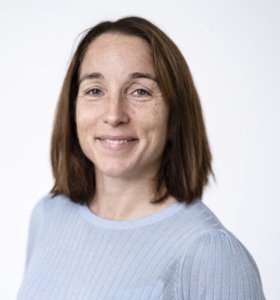Listen to Claire Maxwell on FreshEd:
An Assortment of Insights
by Claire Maxwell
Professor of Sociology
University of Copenhagen
Finding time to read about all the issues that interest you is impossible – we need to keep abreast of the topic-specific research we aim to contribute to, collect relevant materials to draw on in our teaching, and keep connected to broader developments within education. FreshEd helps me with this challenge by providing, on a weekly basis, stimulating access to current publications and key issues. My recommendations are, therefore, not connected to a specific topic but constitute a collection of four podcasts that I have recently listened to, which I found illuminating and used in various ways in my own work.
Antonia Wulff speaks eloquently about the history of the development of Sustainable Development Goal 4, highlighting the processes engaged in to find consensus, challenges around funding such a holistic and inclusive set of targets, and how accountability mechanisms have been established. Antonia’s experience of being ‘in the room’ during negotiations and editing a recent book on this makes her thoughts about the international architecture governing so much of what we are doing in education today, critically insightful.
This academic year, I developed a new course on gender, ethnicity and post-colonialism. Having been on the edges of discussions about the need to decolonise the curriculum when I was at UCL some years ago, I was seeking out resources I could draw on to raise awareness and generate debates with the students at the University of Copenhagen. To this end, I found Riyad Shahjahan, Annabelle Estera and Kirsten Edwards’ podcast on decolonising education critical in helping me push forward with this work. Drawing on an extensive literature review, the speakers discuss how to understand the key concepts within this work, offer examples of exciting practice, and, a real encouragement to take action.
I found Celia Reddick and Sarah Dryden-Peterson’s discussion on the issues around the language of instruction in refugee education absolutely fascinating. They highlighted the many dimensions of providing adequate educational provision for this heterogenous group we call ‘refugees’. And, through the question of the language of instruction, they highlighted yet further challenges for refugee children, families, communities, schools, and governments. Questions of identities, futures, facilitating learning, and so forth are discussed.
Finally, Karen Lillie’s discussion of the role an international boarding school plays in curating a transnational elite class out of the privileged young people from around the world who attend it, is fascinating. Karen takes us into a world most of us have never experienced, and considers how history, geopolitical power relations, global capitalism, and individual narratives intertwine to shape future elites.
April 1, 2022







